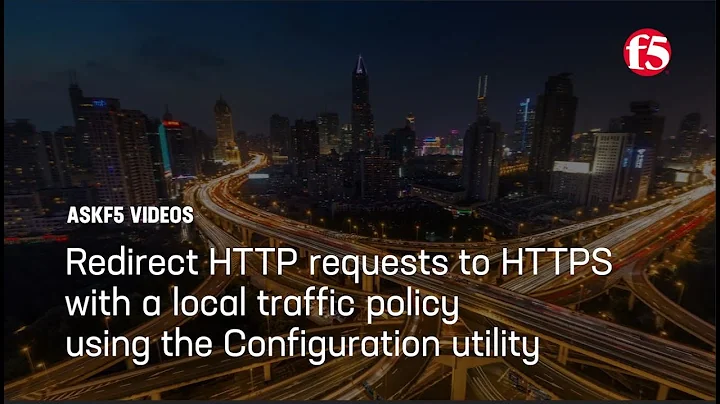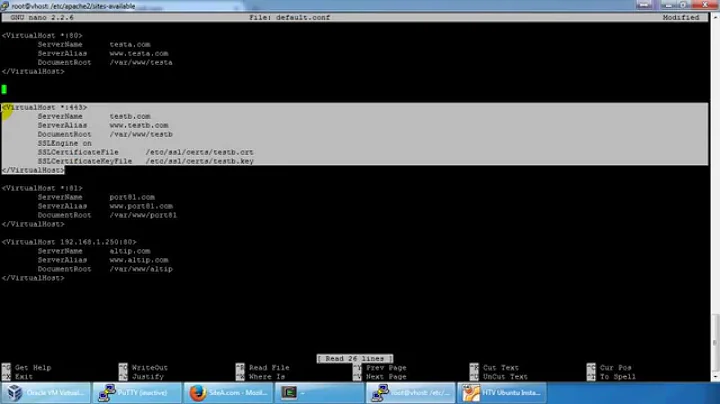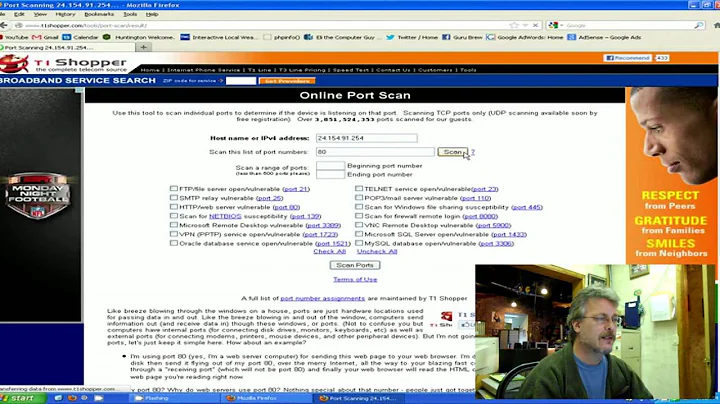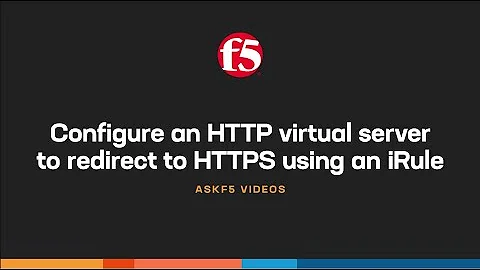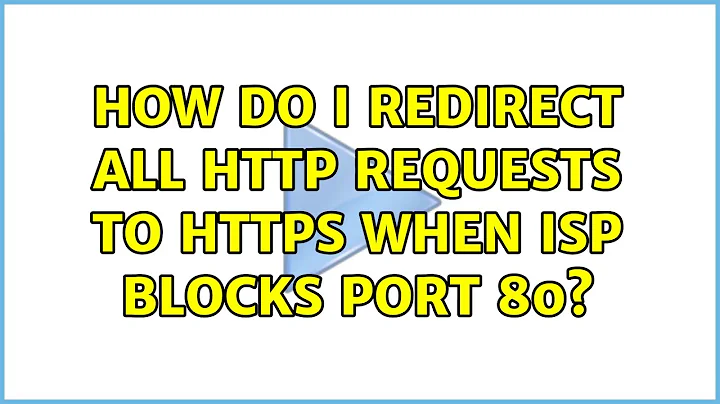How do I redirect all HTTP requests to HTTPS when ISP blocks port 80?
Well, it turns out that it is possible. Using CloudFlare's CDN, you can do an automatic HTTPS redirect at the network level using the "Always Use HTTPS" feature, shown here.
This happens even before the request reaches your server, and is available for the free tier. You can also turn on HSTS if you want to avoid rewriting every time.
Related videos on Youtube
BoomBoomPowe
Updated on September 18, 2022Comments
-
 BoomBoomPowe over 1 year
BoomBoomPowe over 1 yearI am running a HTTPS web server at home but it has one key flaw: you can't connect to it using port 80. My ISP (Cox) blocked (incoming) port 80, there is nothing I can do about it, but luckily for me they did not block port 443. So, I have opted to use a pure HTTPS server, but this is not quite working, since I have a few things I want to redirect to my (HTTPS) server:
http://www.example.com/ redirects to https://www.example.com/http://example.com/ redirects to https://www.example.com/https://example.com/ redirects to https://www.example.com/And finally, the roadblock:
https://www.example.com/points to (CNAME)powe.ddns.net, which is my dynamic DNS. I tried, but I cannot mix URL and CNAME records or make a CNAME only point towards a single port on an IP.So far I have made all the redirects go to
https://ww2.example.com/and have that point at my home server, but with this I cannot makehttps://www.example.com/redirect tohttps://ww2.example.com/because I cannot do HTTPS to HTTPS redirects.All the solutions I have found thus far rely on port 80 being open, which I cannot do. So, what can I do? Possible solutions include HTTPS to HTTPS redirects, port specific DNS, and from-HTTPS URL forwarding (I have only found HTTP to HTTP or HTTP to HTTPS URL forwarding). Thank you!
-
Larssend almost 7 yearsThe kind of response expected by applications when connecting to an HTTP server is very different from the kind of response given by an HTTPS server. Thus, simply redirecting HTTP requests to HTTPS via port redirection is never going to work. My recommendation is to rent a cheap VPS so you can host your Web contents properly without having to resort to hacks. If you don't want to go this route, you will have to tell your potential visitors to access your Web server via HTTPS. Their Web browsers will then automatically send the requests via port 443 by default.
-
 BoomBoomPowe almost 7 yearsYeah, I noticed that when using HSTS it forces https://*** which is great for me! What I wanted to do is have people who visit the site go to port 80 and be redirected to the https:// version of the site. I know a reverse proxy can do what DNS does just with ports instead of IP addresses, so it would work, but I don't know of any "reverse proxy providers."
BoomBoomPowe almost 7 yearsYeah, I noticed that when using HSTS it forces https://*** which is great for me! What I wanted to do is have people who visit the site go to port 80 and be redirected to the https:// version of the site. I know a reverse proxy can do what DNS does just with ports instead of IP addresses, so it would work, but I don't know of any "reverse proxy providers."
-
-
 BoomBoomPowe almost 7 yearsThis is what I used to use, however I do not want to use a URL redirect since that changes the URL to something other than what it was to start with. Either way, it forces the URL to change to something other than what it was to start with, which is unwanted. I already use
BoomBoomPowe almost 7 yearsThis is what I used to use, however I do not want to use a URL redirect since that changes the URL to something other than what it was to start with. Either way, it forces the URL to change to something other than what it was to start with, which is unwanted. I already usefreedns.afraid.orgfor DNS which is how I got the setup I have now, but it is annoying to have the URL change every time you access the site. Is it possible to avoid this? -
 BoomBoomPowe almost 7 yearsI tried doing this but apparently using a
BoomBoomPowe almost 7 yearsI tried doing this but apparently using aURLrecord and anAorAAAArecord in conjunction is impossible. The problem here is that when I create aURLrecord, it forwards all the traffic to a dummy web server that sends anHTTP 301. This means that it essentially points to another IP address and server, so unless it is possible to send some ports to one server and some to another using DNS, this isn't an option. -
 BoomBoomPowe almost 7 yearsBy the way, I have SSL certificates under control and know when I need a new certificate. I already use Let's Encrypt, but I haven't heard of ZeroSSL: do they offer wildcard certificates?
BoomBoomPowe almost 7 yearsBy the way, I have SSL certificates under control and know when I need a new certificate. I already use Let's Encrypt, but I haven't heard of ZeroSSL: do they offer wildcard certificates? -
Anaksunaman almost 7 yearsAbout ZeroSSL, no unfortunately they don't. They simply act as an interface to Let's Encrypt's servers and Let's Encrypt apparently doesn't plan to issue wild card certificates until sometime in 2018.
-
 BoomBoomPowe almost 7 yearsA URL change is not a big deal as long as it is not a very large change: however, I have tried to do this in the past, before I'd use this:
BoomBoomPowe almost 7 yearsA URL change is not a big deal as long as it is not a very large change: however, I have tried to do this in the past, before I'd use this:http://example.com --> https://ww2.example.com,http://www.example.com --> https://ww2.example.com,ww2.example.com [A RECORD] my_ip_address_here, but if you typehttp://ww2.example.comit doesn't work. Every time I find a solution another hole opens up! -
 BoomBoomPowe almost 7 yearsWell that stinks. It might be possible to use a reverse proxy that doesn't have port 80 blocked, but I don't think that is will be that big of a deal. Thanks anyways!
BoomBoomPowe almost 7 yearsWell that stinks. It might be possible to use a reverse proxy that doesn't have port 80 blocked, but I don't think that is will be that big of a deal. Thanks anyways! -
Anaksunaman almost 7 yearsNo problem. Good luck. =)
-
Anaksunaman over 6 yearsGlad to hear you got it working. I haven't used CloudFlare but it makes sense as a CDN they could possibly do this. Good to know!
-
 BoomBoomPowe over 6 yearsYou can also do a rewrite from
BoomBoomPowe over 6 yearsYou can also do a rewrite fromhttp://www.example.net/page_heretohttp://www.example.net:8080/page_hereif you want, but either way, it is pretty useful! -
 Josh over 6 yearsWhat are they odds they can do this in reverse? My ISP is blocking port 443, not 80.
Josh over 6 yearsWhat are they odds they can do this in reverse? My ISP is blocking port 443, not 80.
